The Wing Institute
“The leaders of America’s educational system don’t even know what they want students to learn. And if they don’t know that, then they don’t know what they want teachers to do. If we don’t even know the behaviors that we’re trying to get an increase in, how do we measure teachers? And until we pinpoint what we want students to do, we’re not going to make any long-term advances,” states Dr. Aubrey Daniels, founder and chairman of Aubrey Daniels International (ADI).
Daniels refers to the frustrating fact that America’s educational system is largely broken, but its administrators continue to make the same mistakes. One of those mistakes should be painfully obvious—teachers are measured primarily by high-stakes testing results—which may encourage cheating scandals like those that recently occurred in Atlanta. (Teachers and administrators there were proved to be falsifying test scores in order for their schools to retain accreditation and funding.)
Yes, this country’s educational system continues to pump out innovations—smaller class sizes, charter schools, vouchers, extended teacher education requirements, new reading instructional methods—but most of these approaches are ineffective or even detrimental to students. Who knows which teaching and learning strategies work (or don’t) until students fail or a whole generation deficient in basic skills enters the workforce? That’s where The Wing Institute comes in.
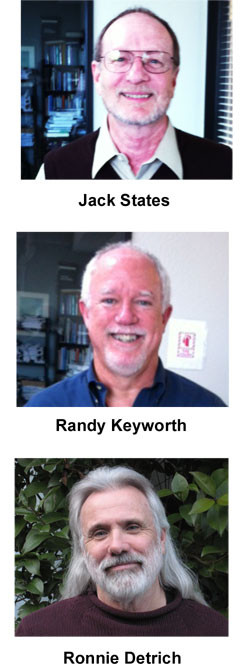 In 2004, Jack States, Randy Keyworth, and Ronnie Detrich founded The Wing Institute, named in memory of Ernie Wing, an educator and child advocate who championed evidence-based education policies and practices in public and private schools. States, Keyworth, and Detrich have over a century of cumulative hands-on experience in research, design, and application of evidence-based education methods. “With behavioral science you make decisions about services based on the data. Evidence-based practice is the same thing, relying on evidence to make decisions about what programs to select in the first place and then evaluating how well those programs are working. That requires measuring the right things the right way,” Detrich explains.
In 2004, Jack States, Randy Keyworth, and Ronnie Detrich founded The Wing Institute, named in memory of Ernie Wing, an educator and child advocate who championed evidence-based education policies and practices in public and private schools. States, Keyworth, and Detrich have over a century of cumulative hands-on experience in research, design, and application of evidence-based education methods. “With behavioral science you make decisions about services based on the data. Evidence-based practice is the same thing, relying on evidence to make decisions about what programs to select in the first place and then evaluating how well those programs are working. That requires measuring the right things the right way,” Detrich explains.
For 30 years the founders of The Wing Institute, all former teachers and educators, operated six private special education schools in the San Francisco Bay area. The schools, which served almost 500 students, were highly successful because they operated on a model that researched and then applied processes and programs that showed real evidence of success. Their model included ongoing measures of student progress throughout the year, continual coaching and feedback for teachers, and metrics to identify and act upon when academic or behavioral interventions were necessary. The group also ran a public school consultation project, helping public schools apply this model.
A national organization offered to purchase the schools at a price that allowed the group to subsequently create The Wing Institute as an independent, non-profit foundation for researching and promoting evidence-based policies and practices. The team’s research-to-practice approach includes the analysis of content areas (policy, systems, administration); educational systems (state, school district, individual schools and classrooms); and stakeholders (the public, government agencies, school administrators, para-professionals, parents and students.) The mission of the Wing Institute is to glean proven educational practices from the seemingly limitless research and then to share those practices with people who can make a difference. “We operate as an independent, endowed foundation. We don’t take money; we don’t have clients. Our job at this point is to disseminate information about what is effective and what’s not effective in education. And then we try to connect people,” says Detrich.
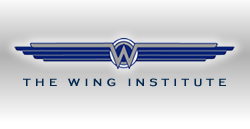 The connection takes place via conferences and seminars around the United States and through an annual, invitation-only summit sponsored by the Institute that invites experts from across the nation to review and add to the knowledge base on effective educational practices. “We see ourselves as a catalyst organization that connects policy makers, researchers, and service folks, superintendents, principals, teachers—and gets those folks in a room talking to each other,” states Detrich. The summits focus on one topic each year—this year the topic will be leadership and culture change. In fact, more and more representatives from business and industry have attended and/or presented at the summits in recent years, including a presentation by Daniels regarding the importance of performance feedback. Such business applications input is welcomed by the Institute’s founders because successful schools adapt a business model.
The connection takes place via conferences and seminars around the United States and through an annual, invitation-only summit sponsored by the Institute that invites experts from across the nation to review and add to the knowledge base on effective educational practices. “We see ourselves as a catalyst organization that connects policy makers, researchers, and service folks, superintendents, principals, teachers—and gets those folks in a room talking to each other,” states Detrich. The summits focus on one topic each year—this year the topic will be leadership and culture change. In fact, more and more representatives from business and industry have attended and/or presented at the summits in recent years, including a presentation by Daniels regarding the importance of performance feedback. Such business applications input is welcomed by the Institute’s founders because successful schools adapt a business model.
The Business of Education
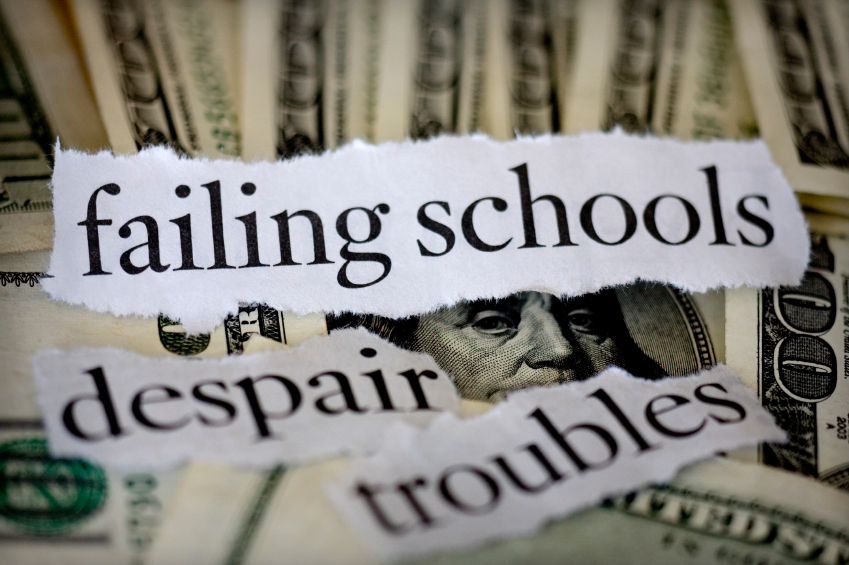 “We are used to talking about education as a business even though you can get into trouble using those two words in the same sentence,” says Randy Keyworth, executive director and senior fellow. “For a business to survive, it has to offer some type of a quality product or service. A successful business has to have a well-trained and reinforced staff and must be cost effective. There should be a return on investment that shows you are actually spending your money wisely. The United States is spending more money on education now than we ever have and we’re just not getting results. We’re not focusing on the right things.”
“We are used to talking about education as a business even though you can get into trouble using those two words in the same sentence,” says Randy Keyworth, executive director and senior fellow. “For a business to survive, it has to offer some type of a quality product or service. A successful business has to have a well-trained and reinforced staff and must be cost effective. There should be a return on investment that shows you are actually spending your money wisely. The United States is spending more money on education now than we ever have and we’re just not getting results. We’re not focusing on the right things.”
A nationwide approach can be ignored and school systems, just as business, can be bogged down in bureaucracy, with findings of the Wing Institute appearing distant and difficult to integrate. However, the Wing Institute staff is diligently working to affect the system one step at a time. “Much of the research is very dense; it’s not user friendly. It took me a good year and a half before I could really decipher a lot of research that I was reading,” says Jack States, executive director and senior fellow. “We look at a particular practice and try to find the research that’s out there on that practice. Then we provide the information in a way that’s going to be easily accessible to the school administrators, to parents, and other people. And we make it available for free.”
Winning people over to the idea that education is a business rather than free-form art is an arduous task, and the roadblocks to measuring and adopting new strategies are abundant. All of the Wing Institute’s founders agree that the rather adversarial and defensive culture inside America’s educational infrastructure is one of the biggest problems to overcome. The same defensiveness is often experienced in companies when changes are introduced to customary, treasured, but ineffective practices.
Culture Wars
“We just looked at a study that reviewed teacher evaluations in 12 large urban districts. Over a period of 10 years there were something like 53,000 evaluations and out of those 53,000 evaluations, 99.6 percent of them were positive. That’s the culture that we’re dealing with,” says Keyworth. The high rate of positive evaluations was not consistent with student performance, so what were the criteria for the evaluations? The issue seems to be one of throwing the baby out with the bathwater. If accountability cannot be redefined in a positive light, then avoid it altogether. This makes for an easier day for everyone . . . except for, in many cases, the students.
“For the better part of the 30 years when we ran a large organization of schools, we had a chance to look at how you can adapt and bring organizational behavior analysis into a system of human resources, development and accountability and get really outstanding results,” says Keyworth. “More and more we’re seeing research and evidence that shows we know how to teach. We know how to run good schools. We know how to get student performance up. The problem really is the culture. The culture at universities is not teaching teachers how to do these things. It’s the culture in public education, which is reactive to every type of school reform, and it’s the culture which still views teaching as an art form and not as a profession.”
Keyworth and his partners are quick to point out that they realize the plight of teachers. However, the present culture resists accountability because of the way that term has been applied.
Accountability Anathema
The loathing of measurement came about understandably, because as measurement is often used in punishing ways in business, so it is used in the academic world. In the schools that this group ran, the use of measurement came to demonstrate a positive outcome for teachers and students. “We really had to make the case, and this is where we’re talking about culture change, that we’re collecting data on everybody’s behavior to help the students learn. The whole focus is student driven. It’s not to punish teachers. It’s saying that we’re the biggest influence in the child’s life and if the child is not succeeding, what can we do differently? How can we look at our own behavior to help the child succeed? That sounds easy but resisting measurement is such a difficult culture to overcome. The only way we can change this is if people start making the case of tying all this data back to the kids. If it’s all focused on administrative requirements or federal law or we want to get rid of the bad teachers, then it will always meet with resistance,” Keyworth says.
 The concept of accountability has become associated not with daily performance, constructive feedback, and collaborative improvement, but with punishment from a system that largely relies on high-stakes testing scores to rate schools, administrators, and teachers. “We must get them using the right accountability tools. All of this pressure that has been put on principals and teachers because of the high-stakes testing, it’s missed much of the point. If that’s all you’re going to do, then it was never designed as an improvement tool. It can’t be, because, if I only look at something once a year to see the overall end result, that’s not providing an opportunity to go in and fix things before it’s too late for students,” says States.
The concept of accountability has become associated not with daily performance, constructive feedback, and collaborative improvement, but with punishment from a system that largely relies on high-stakes testing scores to rate schools, administrators, and teachers. “We must get them using the right accountability tools. All of this pressure that has been put on principals and teachers because of the high-stakes testing, it’s missed much of the point. If that’s all you’re going to do, then it was never designed as an improvement tool. It can’t be, because, if I only look at something once a year to see the overall end result, that’s not providing an opportunity to go in and fix things before it’s too late for students,” says States.
Detrich agrees with this assessment. “The really important question is, are the kids making progress day to day, week to week, during the year? Not all kids come in equal. Some kids could double their learning in a year and still fail the high school test because they’re so far behind, and that doesn’t seem fair to a teacher to say, ‘Well, yes I know you doubled this student’s performance but he still failed and you’re responsible.’ That teacher inherited the sins of the system and now I want to hold the teacher responsible? That’s crazy,” he remarks.
Too Much to Tackle?
Universities that do not want to be evaluated regarding their programs for teachers, overworked teachers who must often teach to the test, administrators who are pressured to try unproved strategies, and then behavioral problems with students: There is plenty of work to be done. “Individual teachers are only as good as the system they’re in. Individual schools are only as good as the system they’re in. If you take this logic and roll it up, then you will eventually find yourself at the top of the pyramid affecting change,” Detrich comments.
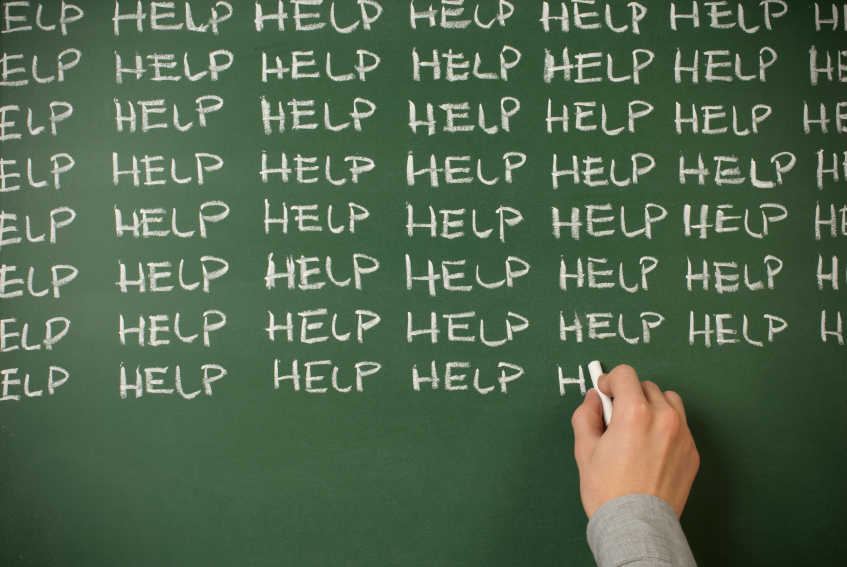 Granted, a few teachers should not be in the profession, but overall, the three founders of the Wing Institute believe that once effective teaching skills are known, that coaching, feedback, and reinforcing teachers for learning and applying those skills are viable approaches to real systemic improvement. Detrich refers to a movement called school wide positive behavior support that is now being used in 15,000 schools across the nation. “It’s essentially a system-level approach dealing with student behavior for all kids, not just the so-called bad kids,” he explains. “How do you set it up so that the students are more likely to behave well in the first place?” Starting at the grassroots level, school wide positive behavior support analyzes and addresses learning difficulties that may result in behavioral problems and it enlists administrators to commit to a customized program for each school.
Granted, a few teachers should not be in the profession, but overall, the three founders of the Wing Institute believe that once effective teaching skills are known, that coaching, feedback, and reinforcing teachers for learning and applying those skills are viable approaches to real systemic improvement. Detrich refers to a movement called school wide positive behavior support that is now being used in 15,000 schools across the nation. “It’s essentially a system-level approach dealing with student behavior for all kids, not just the so-called bad kids,” he explains. “How do you set it up so that the students are more likely to behave well in the first place?” Starting at the grassroots level, school wide positive behavior support analyzes and addresses learning difficulties that may result in behavioral problems and it enlists administrators to commit to a customized program for each school.
“The folks who really started the school of positive behavioral support were some faculty at the University of Oregon and they were very heavily influenced by Tom Gilbert’s approach to human competence. They’re very, very behavioral and they relied on the science of behavior to bring about these changes. It’s about coaching and feedback and monitoring the things that are important,” says Detrich.
America needs to begin spending its money wisely and selectively. As one example that has not met the requirement of evidence-based efficacy, States refers to requirements in some states that teachers receive additional years of education. “National certification costs a lot of time and money for teachers,” he says. “Performance compensation was given to teachers for accomplishing that but the research shows that teachers who did that are no better teachers. So we jumped into the solutions before we looked at what actually makes a significant difference. It’s just another example of where we’ve intervened but we’ve intervened in the wrong place.”
Unfortunately, over many decades such examples abound, wasting not only time and money but the futures of many of America’s students. Changing this situation requires leadership, culture change, and accountability. “I’ve found that principals are really critical. Even good teachers cannot overcome principals who do not provide vision, the right kind of support and feedback, or do not set meaningful student performance standards, holding everyone, including themselves, accountable for meeting them,” says States.
Next Steps
Accountability for continual progress, regular monitoring/coaching of teaching and student skill levels, ongoing feedback between administrators, teachers, and students, and making sure that teaching methods work before they’re imposed on already overworked teachers: these are several recommendations of the Wing Institute. However, once educational approaches are proved effective by the data, the next problem is following through with implementation. “One of my favorite quotes of Ronnie’s [Detrich] is, ‘Implementation is where great ideas go to die,’” says Keyworth. “One of the challenges in education is that many times really good ideas are not implemented well and no one has data to really track how well they’re being implemented. When they fail, people throw the idea out and say that it was a bad idea when it wasn’t necessarily a bad idea.”
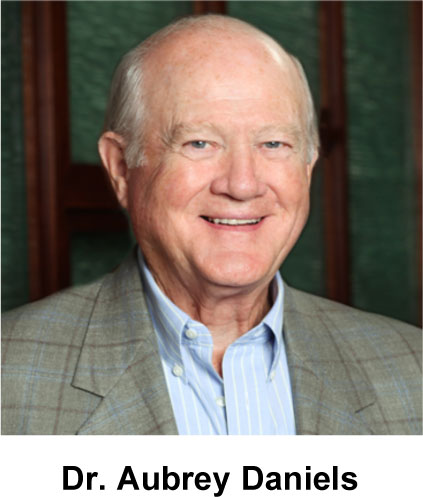 Therefore The Wing Institute will continue to examine the research and analyze the data in their goal to share those good ideas and enable schools to implement, track, and support methods that work. “They are providing a great service by eliminating 90 percent of the research that is done that is just fluff,” says Daniels. “They’re able to help, because people are inundated with information that doesn’t get to the heart of which behaviors and processes produce outstanding results.”
Therefore The Wing Institute will continue to examine the research and analyze the data in their goal to share those good ideas and enable schools to implement, track, and support methods that work. “They are providing a great service by eliminating 90 percent of the research that is done that is just fluff,” says Daniels. “They’re able to help, because people are inundated with information that doesn’t get to the heart of which behaviors and processes produce outstanding results.”
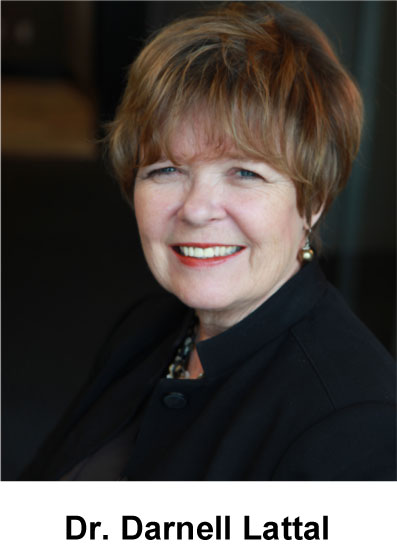 “The process of implementation is the great challenge in changing business as well as in changing schools. The focus must be on identifying what behavioral success looks like at each level of impact—from the individual performer to the senior leadership—measuring the successful accomplishment of each individual in achieving those success targets,” says ADI CEO Darnell Lattal. “If such cascading measures of success can be achieved in complex business systems by embedding skills in the science of behavior analysis, then school systems and individual teachers using this science can indeed become truly effective in unleashing and accelerating student learning mastery beyond our wildest dreams. Achieving the promise in this science of human behavior requires a commitment to reducing coercion and threat, accelerating measureable and meaningful accomplishment, and engaging everyone in producing ethical, sustainable, and data-driven behavior change.”
“The process of implementation is the great challenge in changing business as well as in changing schools. The focus must be on identifying what behavioral success looks like at each level of impact—from the individual performer to the senior leadership—measuring the successful accomplishment of each individual in achieving those success targets,” says ADI CEO Darnell Lattal. “If such cascading measures of success can be achieved in complex business systems by embedding skills in the science of behavior analysis, then school systems and individual teachers using this science can indeed become truly effective in unleashing and accelerating student learning mastery beyond our wildest dreams. Achieving the promise in this science of human behavior requires a commitment to reducing coercion and threat, accelerating measureable and meaningful accomplishment, and engaging everyone in producing ethical, sustainable, and data-driven behavior change.”
 Ultimately those students that emerge from America’s schools successfully could have been even more successful. Many of those students have a home advantage that helps them overcome the roadblocks of a flawed system, but what about the others? “If we want to address crime and other inequities that exist, education—as I see it—is the best social leveler we have. It increases everyone’s opportunity to participate,” Detrich comments. “We don’t pretend that a systems change is simple, but our argument is that over the last 30-40 years, schools have focused on structural changes. In plain fact, unless we change what happens in the interaction between the classroom teacher and the student, we’re not going to change education.”
Ultimately those students that emerge from America’s schools successfully could have been even more successful. Many of those students have a home advantage that helps them overcome the roadblocks of a flawed system, but what about the others? “If we want to address crime and other inequities that exist, education—as I see it—is the best social leveler we have. It increases everyone’s opportunity to participate,” Detrich comments. “We don’t pretend that a systems change is simple, but our argument is that over the last 30-40 years, schools have focused on structural changes. In plain fact, unless we change what happens in the interaction between the classroom teacher and the student, we’re not going to change education.”
Published February 16, 2012


